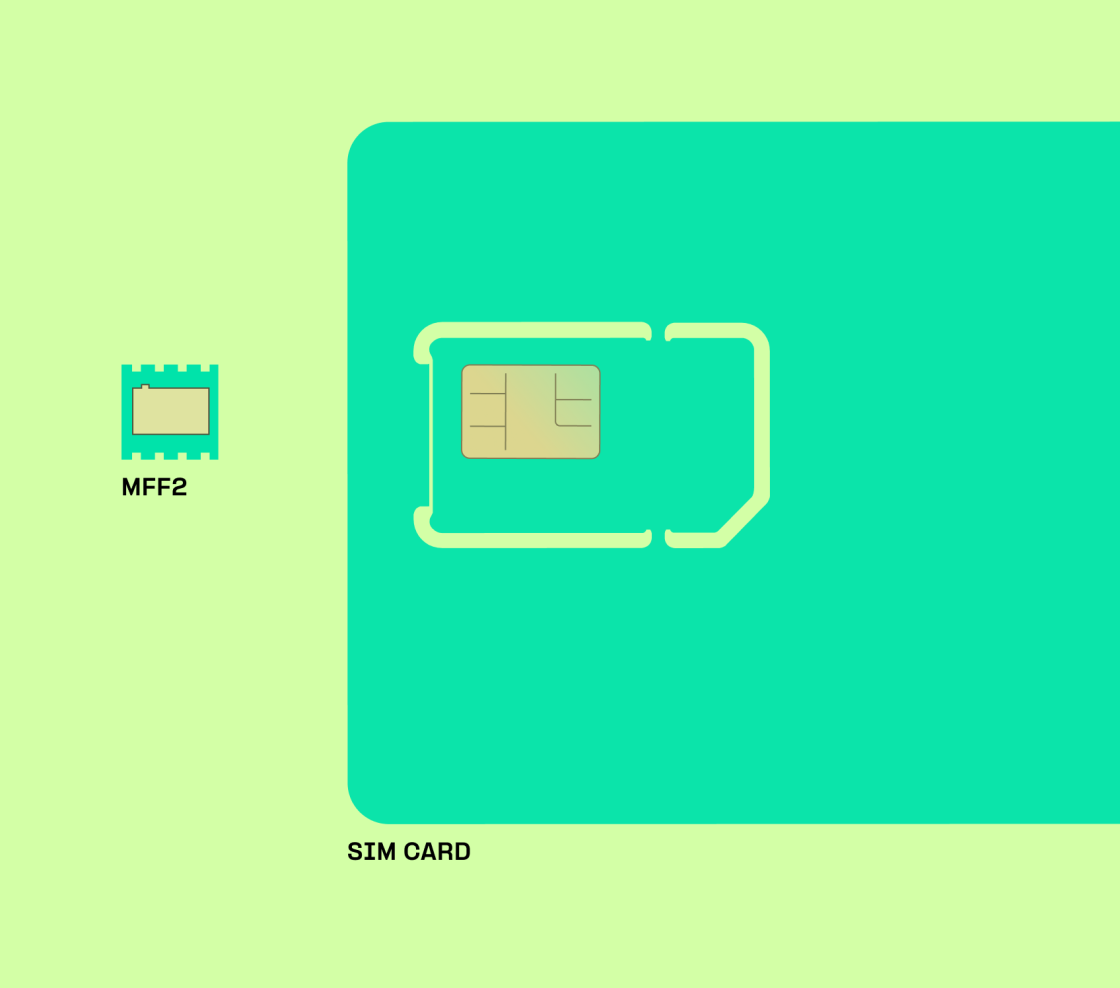Global Sim Card Iot IoT SIM Card
Telkomsel Iot Sim Card Fastest growing multi-network IoT SIM
The rise of the Internet of Things (IoT) has reworked various sectors, with healthcare being one of the considerably impacted. The implementation of IoT devices in healthcare provides enhanced patient monitoring, streamlined operations, and improved outcomes. However, as the number of connected gadgets grows, so does the necessity for secure IoT connectivity for healthcare units. The stakes are particularly high on this sector, where data sensitivity and patient security are paramount.
IoT gadgets in healthcare embody wearables, smart beds, and remote monitoring systems. These instruments gather critical information, allowing healthcare suppliers to watch trends over time and make knowledgeable decisions. However, this interconnectivity poses important risks, primarily around information security and patient privateness. Hackers and malicious entities are increasingly concentrating on healthcare infrastructures, making the need for sturdy security protocols indisputable.
Secure IoT connectivity entails using multiple layers of safety measures designed to guard not solely the gadgets but also the information being transmitted. Cheapest Iot Sim Card. Encryption performs a significant position right here. By changing the knowledge into an unreadable format throughout transmission, encryption ensures that even when intercepted, the info stays inaccessible to unauthorized customers. Strong encryption protocols are needed for any gadget that communicates sensitive information.
Authentication processes add another crucial layer of safety. Each system interacting inside a healthcare community ought to possess safe credentials, making it tough for unauthorized devices or people to realize entry. Advanced authentication strategies such as two-factor authentication or biometric methods can enhance this layer, offering added assurance that only permitted personnel can work together with delicate knowledge.
Iot Sim Card Built For Bigger Internet of Things SIM Cards
When contemplating safe IoT connectivity for healthcare devices, the implementation of a comprehensive network structure is crucial. This contains utilizing virtual private networks (VPNs) to create secure tunnels for knowledge transmission. VPNs shield knowledge from being intercepted by making a safeguarded connection between units and servers. Organizations want to make certain that these networks are maintained and up to date regularly to counter rising threats.
Moreover, continuous monitoring of the network can help in figuring out any unusual actions. Real-time analytics can flag anomalies, permitting suppliers to take instant action if a menace is detected. Automated response methods can additional improve this safety mannequin, enabling quick protecting measures without manual intervention, which may be crucial for time-sensitive knowledge.

Regulatory frameworks such as HIPAA (Health Insurance Portability and Accountability Act) outline the required measures healthcare providers must adhere to in safeguarding patient data. Compliance with these rules is not only a authorized necessity but also a fundamental side of constructing belief with sufferers. By ensuring that each one related units meet these standards, healthcare organizations can set up a safe environment for knowledge exchange.
Vodacom Iot Sim Card SIM Card IoT Projects Global Deployments
The importance of educating workers can't be underestimated. Employees dealing with healthcare devices and networks must be well-versed in security protocols and best practices. Regular training periods can maintain the workers updated on rising threats and the significance of data safety. Human error remains one of many weakest links in cybersecurity; thus, fostering a culture of security consciousness inside healthcare organizations is important.
Device manufacturers also play a vital position in establishing a secure IoT framework. Devices must be designed with security in thoughts from the bottom up, incorporating options corresponding to secure boot processes, frequent software program updates, and vulnerability assessments. Each system should support simple firmware updates to patch identified vulnerabilities and improve safety features.
Iot Sim copyright IoT SIM Cards Explained Understanding Differences
Collaboration among stakeholders in the healthcare sector is significant my website for creating complete security measures. Healthcare providers, system producers, and regulatory bodies must work collectively to create a unified method to safe IoT connectivity. Establishing industry standards can encourage safer practices across the sector, paving the method in which for protected integration of IoT technologies.
In conclusion, safe IoT connectivity for healthcare devices just isn't merely an add-on but a fundamental requirement for leveraging the full potential of related technologies in affected person care. The healthcare trade must invest in sturdy safety measures, including encryption, authentication, and steady monitoring, while also aligning with regulatory standards. Importantly, education and collaboration amongst stakeholders serve as essential pillars in forming a secure environment. As IoT adoption continues to grow, prioritizing these parts will shield sensitive knowledge and ultimately enhance patient security.
What Are Iot Sim Card What is an IoT SIM Card?
- Implement sturdy encryption protocols to safeguard information transmitted between healthcare gadgets and distant servers, making certain patient confidentiality.
- Utilize secure gadget onboarding processes to authenticate and authorize new IoT devices before they connect to the network, reducing unauthorized entry risks.
- Regularly replace firmware and software program of linked units to guard towards vulnerabilities and ensure compliance with the most recent safety standards.
- Employ network segmentation to isolate healthcare IoT devices from other critical techniques, mitigating the impact of potential breaches.
Iot Sim Card Europe IoT SIM Card

- Establish real-time monitoring and anomaly detection techniques to determine unusual activity or breaches, permitting for swift incident response.
- Implement strict access controls and roles to restrict who can view and handle information from IoT units, sustaining a precept of least privilege.
Cheap Iot Sim Card IoT SIM Plans and Pricing
- Conduct regular safety audits and vulnerability assessments on IoT infrastructure to proactively determine and address weak factors.
- Ensure all collected patient knowledge is pseudonymized or anonymized when potential, reducing risks in case of information breaches.
Iot Sim Card Australia IoT SIM Card
- Collaborate with producers to ensure that IoT devices come geared up with built-in security features that comply with trade regulations.
- Educate healthcare workers on safety greatest practices and the importance of safeguarding IoT devices to foster a culture of safety awareness inside the group.
What is Secure IoT connectivity for healthcare devices?
Secure IoT connectivity refers to the implementation of protective measures in the communication processes between Internet of Things (IoT) gadgets in healthcare. It ensures that knowledge transmitted between devices, corresponding to wearable medical units or smart hospital gear, is encrypted and secure from unauthorized access or cyber threats - Iot Sim Card Providers.
Why is Secure IoT connectivity essential in healthcare?
Iot Sim Card Australia IoT SIM Cards Multi-Carrier Connectivity
It is crucial as a outcome of healthcare devices typically handle delicate patient data, including private health info. Secure connectivity protects this data from breaches, maintains patient privateness, and ensures compliance with rules like HIPAA, thus enhancing overall trust in healthcare methods.
How does encryption work in IoT healthcare devices?
Encryption converts the info transmitted between units into a coded format that may solely be read by view licensed customers who possess the proper decryption key. This process defends the data from unauthorized entry, maintaining confidentiality throughout transmission.
Iot Sim Card Guide The best IoT SIM card

What are common safety threats to IoT units in healthcare?
Common threats include unauthorized system entry, knowledge breaches, denial-of-service attacks, and malware. Each poses risks to affected person information security, system performance, and general healthcare supply, necessitating sturdy safety protocols to mitigate these risks.
How can healthcare organizations guarantee secure IoT connectivity?
Organizations can implement sturdy encryption protocols, common security audits, steady monitoring, and employees training. They also wants to adhere to industry best practices and regulatory standards to foster a culture of security awareness.
Cheapest Iot Sim Card Global IoT SIM Card Multi-Network M2M
What function does authentication play in securing IoT devices?
Authentication ensures that solely authorized units and customers can entry the healthcare IoT network. Strong authentication strategies, like multi-factor authentication, help forestall unauthorized access and safeguard delicate information.
Free Iot Sim Card Multi-Network M2M SIM global Internet Things
How usually should safety measures be up to date for IoT healthcare devices?
Security measures should be reviewed and up to date regularly, ideally a minimal of each six months or every time a threat is identified. As cybersecurity threats evolve, it is critical for healthcare organizations to adapt their methods accordingly.
Iot Sim Card IoT Industrial Business SIM Cards
Can patients or customers monitor the security of their healthcare devices?
Yes, many trendy healthcare IoT devices come with options that allow users to monitor settings and access logs. Patients should inquire about these features and keep informed about their gadget's security status to make sure their knowledge stays protected.
Iot Global Sim Card IoT SIM card IoT M2M eSIMs
What are the implications of a safety breach in IoT healthcare devices?
A breach can lead to unauthorized access to sensitive affected person data, financial loss, and reputational damage to healthcare suppliers. It can also compromise patient safety, as system performance may be affected, in the end impacting the quality of care acquired.